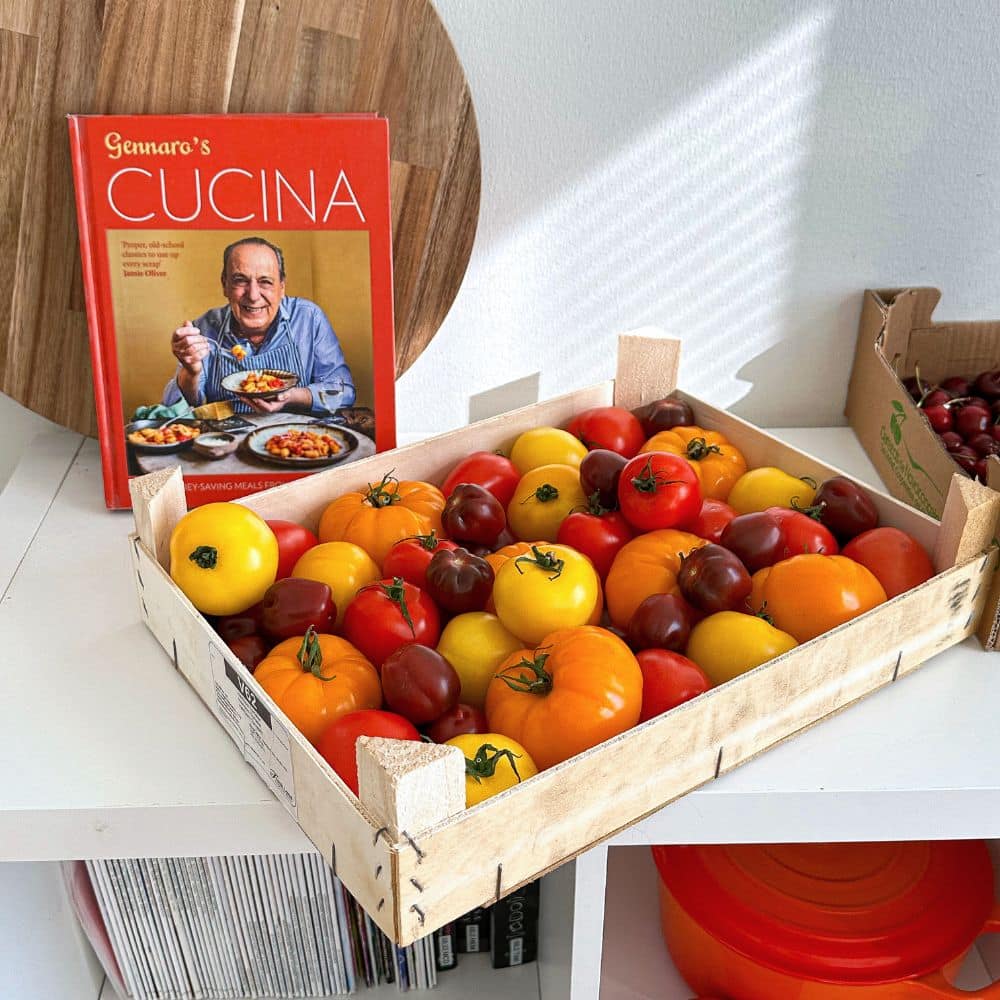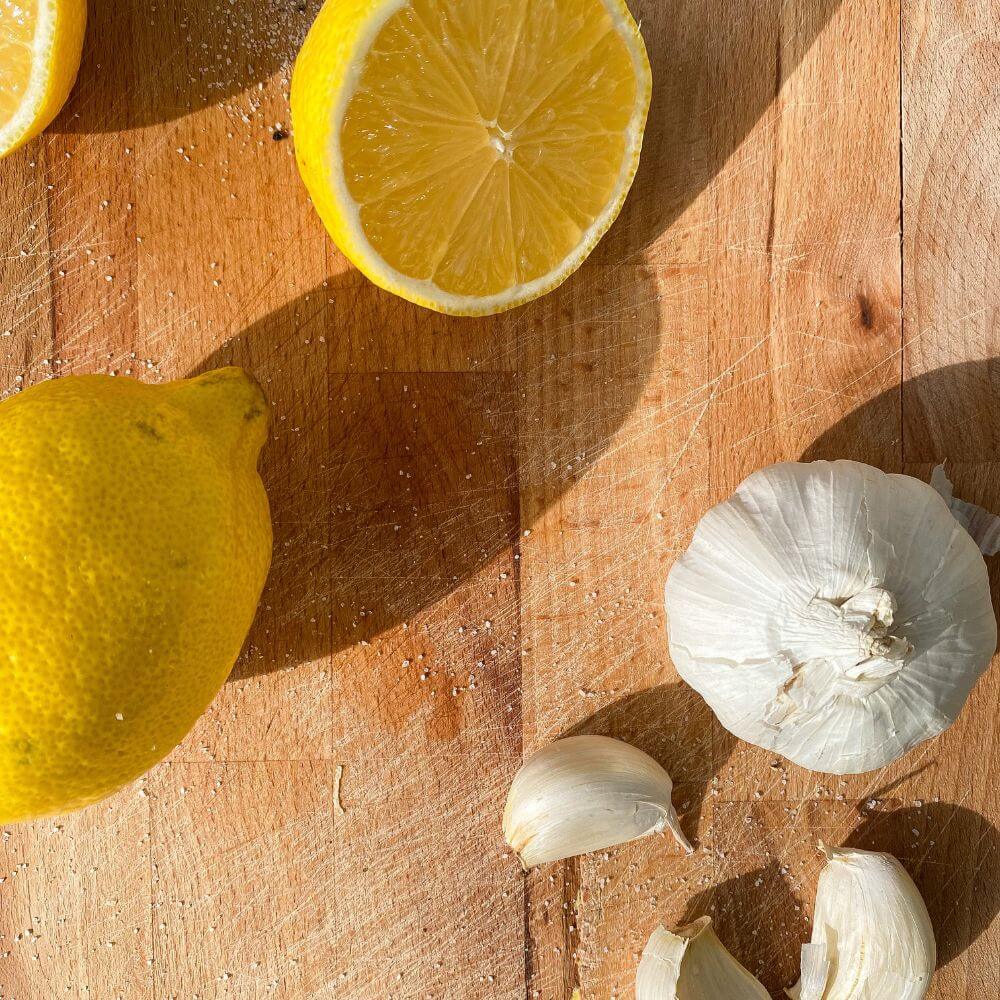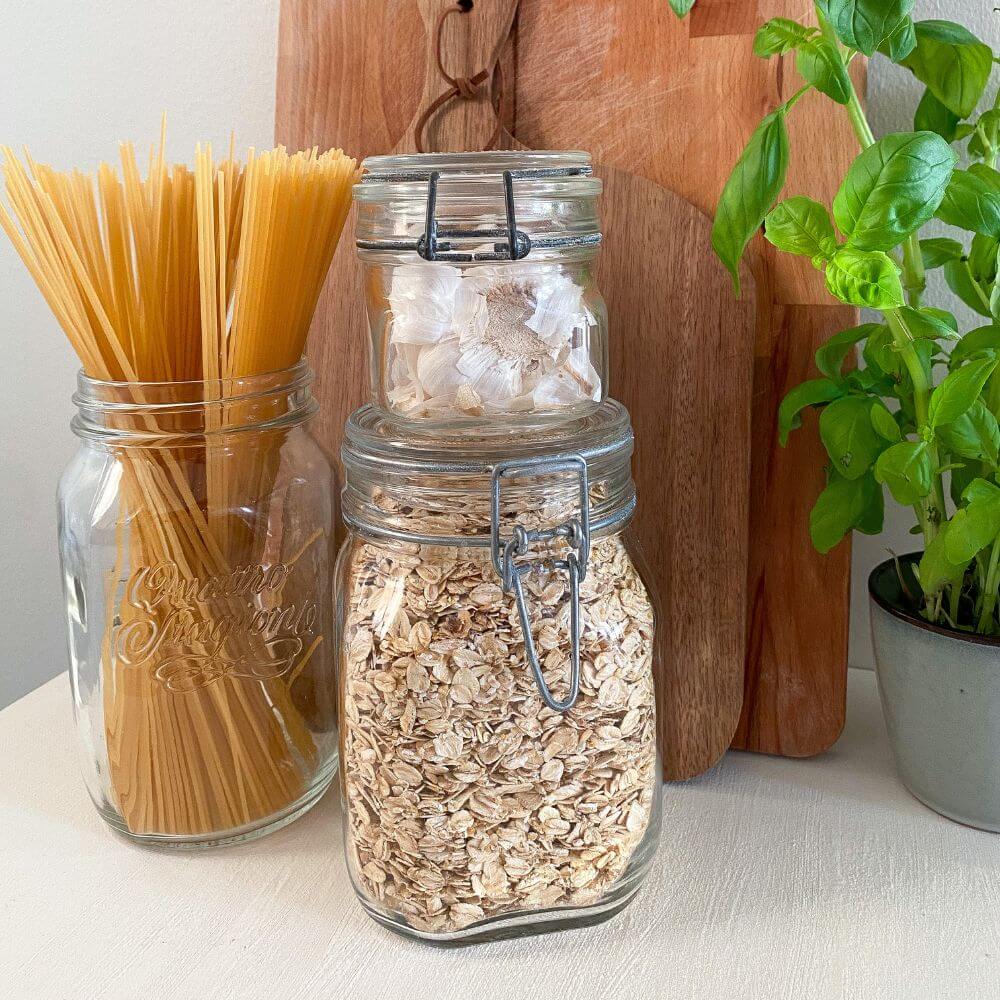
Gluten-free Mediterranean Pantry Stables
You’ll see a lot of brightly colored vegetables, delicious fruits, fish, herbs, legumes, nuts, grains, and healthy fats in Mediterranean cuisine. The emphasis is on quite simple, but delicious flavors and high-quality produce.
Whether you’re following a gluten-free diet or simply looking to infuse your meals with the wholesome and aromatic flavors of the Mediterranean, this guide is here to inspire you <3 From hearty grains and legumes to fragrant herbs and spices, we’ll explore the essential ingredients that form the backbone of Mediterranean cooking.
Gluten-free Mediterranean Pantry Stables in a nutshell
- Herbs
- Spices and spice mixes
- Condiments
- Canned foods
- Fresh Produce
- Grains
- Nuts, seeds, and dried fruits
- Other

Mediterranean Herbs
We must start with herbs since fresh and dried herbs are essential in Mediterranean cuisine! They are by far my favorite way to add flavor & dimension to any dish.
Herbs have antioxidant and anti-inflammatory properties, and they can help to support your digestion and promote good gut health. Plus they make everything taste so good.
Commonly used herbs in the Mediterranean cuisine
- Parsley
- Chives
- Oregano
- Thyme
- Tarragon
- Rosemary
- Dill
- Mint
- Basil
- Bay leaf
Mediterranean spices
The most commonly used spices in Mediterranean cuisine are:
- Salt
- Black pepper, white pepper
- Turmeric
- Garlic
- Onion
- Sweet paprika and smoked paprika
- Sumac; a zesty spice made from dried & ground berries (from the sumac shrubs)
- Saffron
- Sage
- Coriander
- Red chili flakes/chili powder
- Cumin
- Coriander
- Cinnamon
- Cardamom
- Nutmeg
- Clover
Mediterranean spice mixes
There are so many different flavors and spice mixes – but here are a few of them! These spice mixes are something you can find in many recipes. Also – you can most likely find them at your local ethnic market, well-equipped supermarket, or Amazon.
Harissa – a spicy Tunisian chili paste, made with chilies, olive oil, and other spices such as garlic, paprika, and cumin. It can be used in yogurt dressings, couscous dishes (continue reading for gluten-free alternatives), stews, soups, hummus, marinades, and sauces for example.
Za’atar – a mix of sumac, oregano, marjoram, thyme, sesame seeds, salt, and Aleppo chili flakes. (herbs and spices vary depending on region). See a recipe for my Za’atar blend here!
Italian herbs/seasoning – a mix of oregano, thyme, basil, and rosemary. Great for salads, dressings, pizza, pasta, sauces, and fish.
Dukkah – Egyptian spice blend that’s made from different spices, nuts, and seeds. The spice mix can contain sesame seeds, pine nuts, pistachios, hazelnuts, cumin, coriander, paprika, salt, and black pepper. Great for salads, rubs for fish (and meat), or sprinkled over sandwiches or hummus.
Herbes de Provence – a blend of mixed herbs; oregano, thyme, rosemary, marjoram, and savory. Great for salads, dressings, sauces, and fish.
Baharat spice mix – “Baharat” means spice in Arabic, and the spice mixture varies from region to region. It’s widely used in the Middle East, but also in the Mediterranean. Some of the common spices used in Baharat are; fresh black pepper, paprika, coriander, cumin, nutmeg, cardamom, clover, and cinnamon.

Condiments
- Extra virgin olive oil; It’s been used for thousands of years by the ancient Greeks and Romans, and it’s the ultimate stable in Mediterranean cuisine. Extra virgin olive oil is rich in antioxidants and vitamins and helps lower bad cholesterol. It’s used for sauteing, salad dressings, desserts, stews, pasta sauces, skincare, haircare…everywhere.
- Vinegar; apple cider vinegar, balsamic vinegar, white, or red wine vinegar. A good vinegar adds acidity and flavor to any Mediterranean dish. Olive oil + vinegar (with a pinch of salt and herbs) make the easiest and most delicious salad dressing!
- Tahini; a delicious paste made from toasted and hulled sesame seeds. Rich in nutrients and healthy fats, and most importantly, a delicious base for many dressings and spreads. Also used in Baba Ganoush and hummus.
- Dijon mustard; perfect for salad dressings and marinades.
- Honey; a natural sweetener rich in antioxidants used in many desserts, dressings/marinades, and savory dishes in the Mediterranean.
Did you know that 50 % of the worlds olive oil is produced in Spain? Most of the olive oil coming from the Southernmost region, Andalucia.
Ps. I have written a blog post about the best dips and sauces from the Mediterranean, which you can check out here 🙂

Canned foods
- Canned fish; tuna, anchovies, and sardines. Tuna is great to have in hand for different salads (especially Niçoise salad) pasta dishes, and sandwiches. Anchovies and sardines add great saltiness and flavor to salads, dressings, sandwiches, and different pasta dishes.
- Legumes; chickpeas, beans, lentils. Legumes are a biiig part of Mediterranean cuisine, and they are filled with fiber, protein, vitamins, and minerals. If I could only choose one legume, I would go with chickpeas! They are versatile and essential in dishes like falafels, hummus, different stews, and salads.
- Tomatoes; canned tomatoes, sundried tomatoes, tomato puree, passata. Tomatoes are such a versatile ingredient, high in antioxidants, and a great source of vitamin C. They make the perfect base for sauces used in different pasta dishes and stews. Use intensely flavored sundried tomatoes for salads, pasta dishes, or focaccia!
- Olives; I always keep green & black kalamata olives in my pantry. They are a perfect salty snack and the perfect addition to salads, stews, pizza, and pasta!
- Capers; lemony and tangy capers are perfect for salads, sauces, and different fish dishes.

Fresh produce
- Garlic; a stable Mediterranean flavor. Compliments ANY dish you can imagine. Garlic is also a powerful and antioxidant-rich ingredient for boosting the immune system and digestion.
- Onion; you’ll find onion in many soups, salads, and stew recipes that originate from the Mediterranean. Also used in dressings, sauces, omelets, sandwiches, tarts, pizzas…
- Lemons; fresh and preserved lemons are a Lemons are used in different dressings, sauces, desserts, salads, and fish & meat dishes. Use the zest of organic lemon to make some delicious gremolata!

Grains
- Gluten-free pasta. Wheat is a big part of the Mediterranean diet, but thankfully there are great options for celiacs or anyone with gluten sensitivity. You can find protein-packed, and gluten-free rotini pasta, gluten-free penne, or gluten-free spaghetti.
- Rolled oats. Wholegrain oats are a great source of fiber, vitamins, and antioxidants. Use in your morning oatmeal or desserts. Ps, You can make your own oat flour by blending rolled oats in a blender.
- Oat groats. Another great way to get in your fiber, vitamins, and minerals. Oat groats are a perfect addition to nourishing bowls and salads. Can be used like rice (and they have a kind of similar texture).
- Quinoa; I use quinoa for replacing couscous and bulgur in recipes like tabouleh and couscous salad. Quinoa is protein-rich and packs a great number of antioxidants and other important nutrients.
- Rice; basmati, jasmine, risotto, bomba, brown rice. Rice is widely used in many Mediterranean dishes such as Paella, Rice Pilaf, Risotto, and Yellow rice for example.
- Buckwheat; nutritious and fiber-rich grain that’s perfect for salad bowls, use like other grains.
- Millet; another great grain to use instead of couscous or bulgur. Serve with different stews and sauces, or add to your nourish bowls and salads.

Nuts, seeds, and dried fruit
- Nuts; especially almonds, pine nuts, walnuts, and pistachios. Easy and energy-rich snack, crunchy topping to your salad or soup. Also used in different spice mixes, desserts, and savory dishes.
- Seeds; pumpkin seeds, sunflower seeds, sesame seeds. Add these to salads, granola, vegetable patties, pesto, or soups for added crunch, healthy fat, and protein. You can also make your own Tahini by blending some sesame seeds and olive oil in a food processor!
- Dried fruits; such as dates, raisins, apricots, cranberries, and figs. Another great snack and a healthier alternative to sweets. Dried fruits are used in many desserts, salads, and stews.
+ Can’t forget
- Tea; especially green tea, camomille, and peppermint tea. Drinking a cup of tea after a meal helps your body to digest everything.
Those were my Gluten-free Mediterranean Pantry Stables! I hope this was helpful for anyone who’s interested in Mediterranean cuisine! Please tell me, what are some things you always keep in your pantry? 😋 For me, I couldn’t survive without Extra virgin olive oil, garlic, and lemons! 🍋
*Linked items are my personal favorites! If you make a purchase through the link, I receive a small commission without any additional cost to you. Thank you for your support <3
